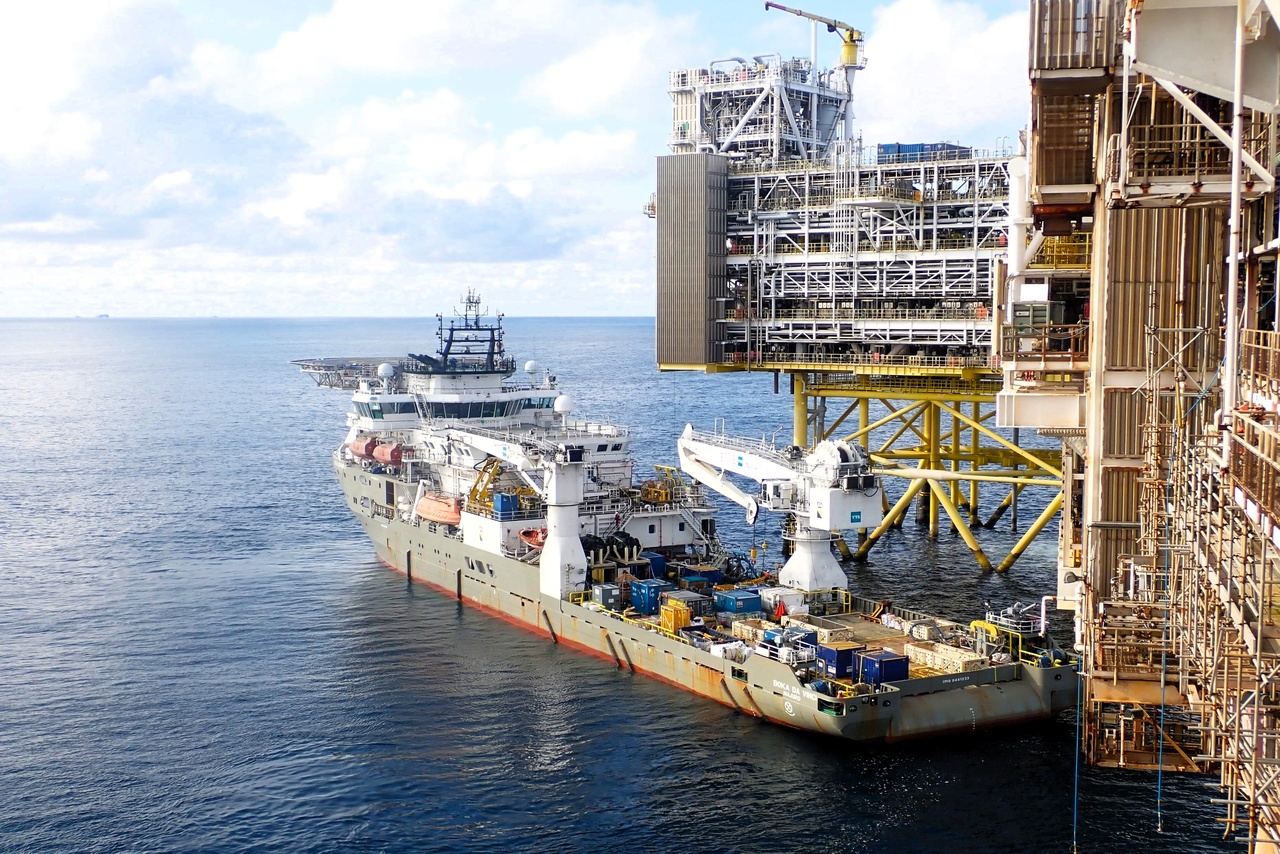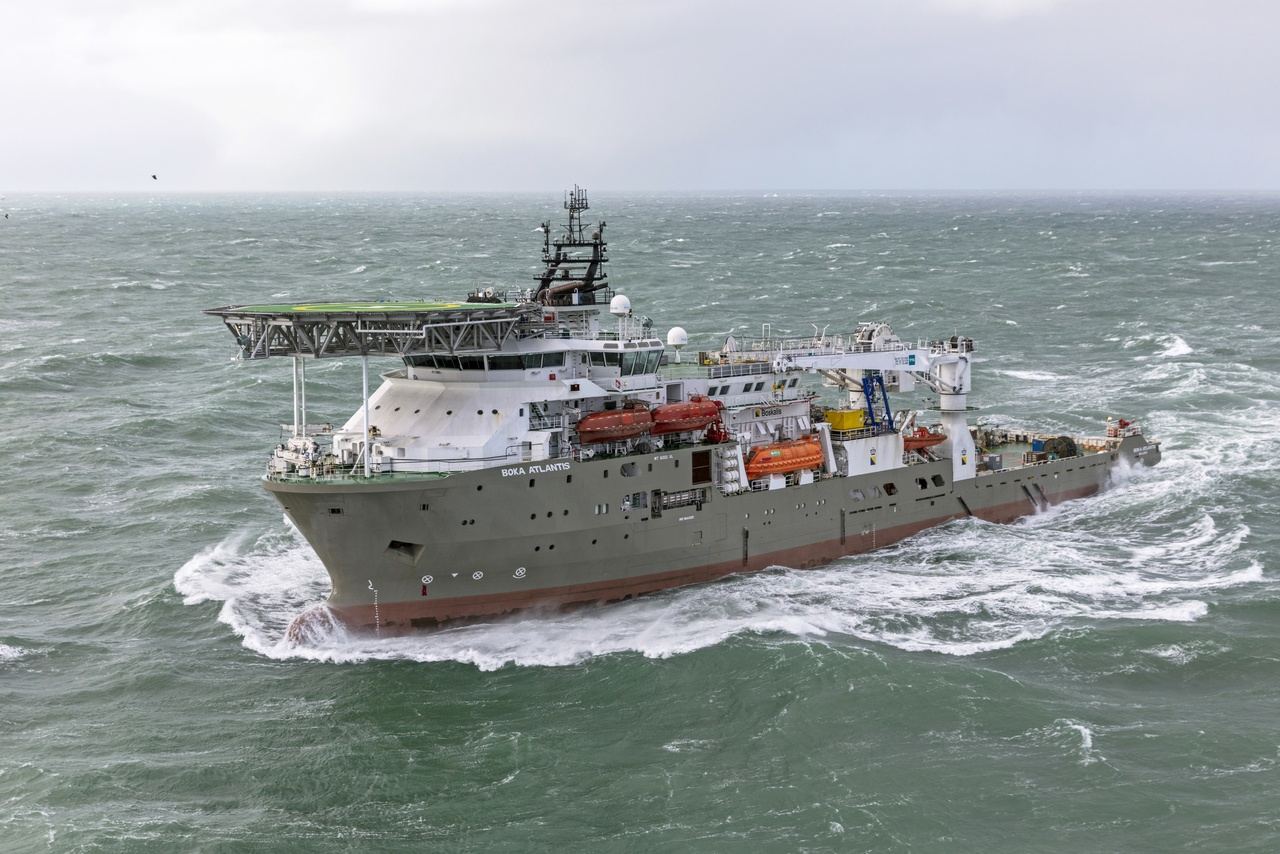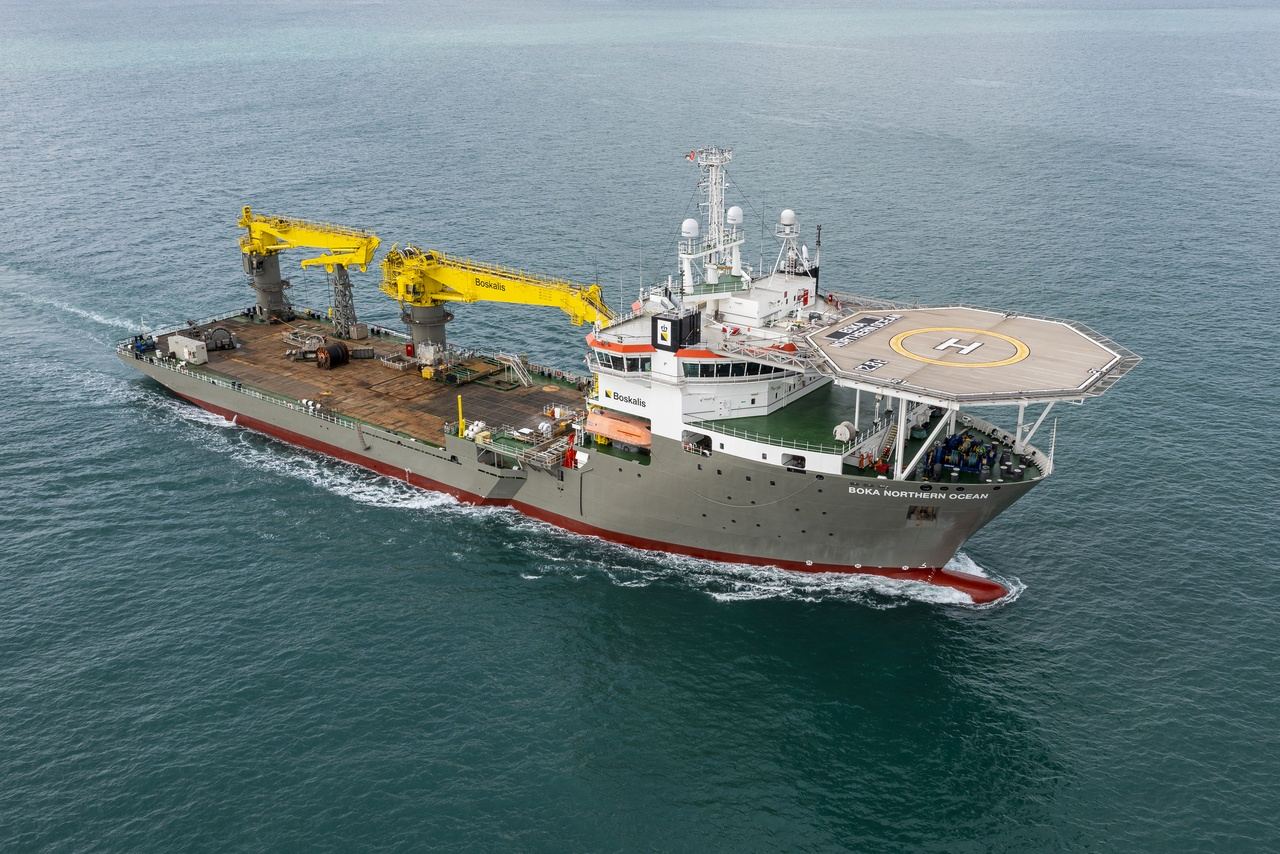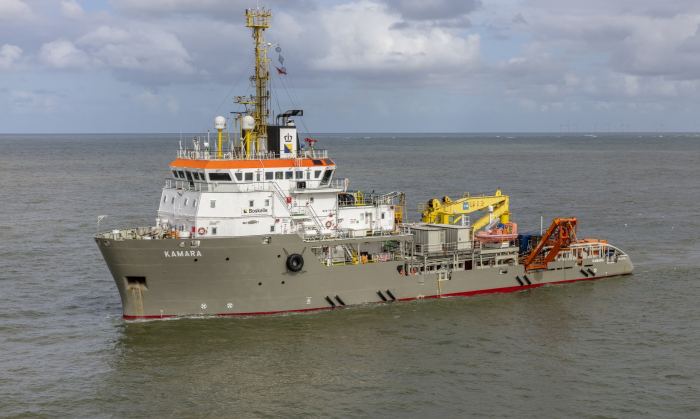Since the publication of the previous edition of this magazine, Boskalis has equipped several offshore vessels with an Energy Storage System (ESS). This set of powerful batteries – power packs – serves as a complement to the direct power provided by the diesel generators, ensuring more efficient energy use. The diving support vessel (DSV) BOKA Da Vinci was the first vessel to utilize the batteries during a project.
One of the worst things that can happen aboard a DSV is a blackout. Because when the vessel’s power unexpectedly fails during a diving operation, the engines and Dynamic Positioning (DP) system shut down, causing the vessel to lose its fixed position at sea. As a result, saturation divers working at depths of tens, sometimes hundreds, of meters are immediately placed in life-threatening situations. In other words, particularly in the offshore diving industry, the reliability and redundancy of the vessel and its vital systems are at the very top of the priority list.
Onboard the BOKA Da Vinci and the other DP vessels in the Boskalis fleet, preventive measures have already been taken to separate the energy supply. A blackout can therefore never completely disable the vessel; at worst, only half of the vessel becomes temporarily unusable.



Technical efficiency
So why was this type of vessel chosen to be the first equipped with batteries? Precisely because of its critical importance. One of the primary goals of the system is that it can immediately supply previously stored energy when the vessel requires it, in the most extreme case being a blackout. Furthermore, the ESS enables the BOKA Da Vinci to shut down at least one (diesel) generator during offshore operations in relatively favorable weather conditions without compromising the vessel’s safety or redundancy. A third key function is that the charged batteries optimize the utilization of the still-running engines and absorb large energy peaks from the deck crane, ultimately resulting in reduced nitrogen and carbon dioxide (CO₂) emissions.
These technical efficiency measures all contribute to achieving Boskalis’ emission reduction targets for 2030 and beyond. BOKA Da Vinci captain Marcin Goluch: “The primary objective of our offshore operations is to execute the work that divers perform on the seabed as effectively, efficiently, and safely as possible. To be completely honest, fuel savings are less of a priority for us in this regard. Of course, we support it and strive to carry out our work as energy-efficiently as possible. But we must always remember that there are divers working beneath our vessel who rely on its reliability. The first results obtained with this system are more than positive, and we now know that we are just as – if not more – reliable. But it was a matter of ‘seeing is believing.’ We quickly reached the point where we gained confidence in this system, both on the bridge and for the divers in the water.”
Fuel savings
Under certain conditions at sea, vessels equipped with battery packs can shut down a generator and rely on the energy stored in the batteries. Project data indicates that, under favorable weather conditions in the North Sea, this can lead to fuel savings of over twenty percent.
This percentage corresponds with the theoretical calculation made by the chief engineer on the BOKA Da Vinci prior to the installation. However, the fuel savings achieved by the ESS cannot be expressed in exact figures, mainly because they strongly depend on the (constantly changing) offshore conditions in which the work is carried out. “I can only share my experiences, and they are significantly more positive than I initially anticipated,” says Goluch. “We are genuinely convinced onboard; we see that the systems onboard are more reliable and effective. The longer we work with this system, the more confidence we gain in it and the more we understand it. Our ultimate goal is to utilize the available energy onboard even more functionally and effectively. It is highly satisfying to witness and, in part, shape a change like this in our industry.”
